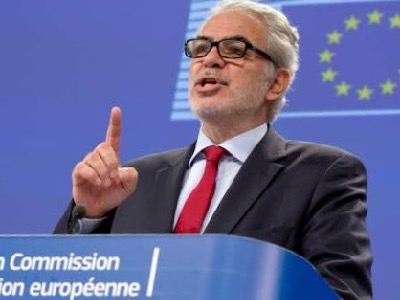
We have noted the July 18, 2019 statement at the European Parliament by European Commissioner for Humanitarian Aid and Crisis Management Christos Stylianides on behalf of the High Representative of the European Union for Foreign Affairs and Security Policy. We perceive his assessments of the human rights situation in Russia with an emphasis on the Ukrainian “political prisoners” as biased and aiming to play into the hands of those EU political forces that are interested in further demonising Russia and preserving the current and obviously abnormal state of Russia-EU relations.
The heightened and obviously unhealthy interest of our EU colleagues concerning the situation of human rights in Russia [which may serve as the only explanation why this very subject was discussed at one of the first plenary meetings of the newly elected members of the European Parliament] cannot but cause dismay against the backdrop of the existing numerous system-wide problems in this sphere in the EU itself. We would like to point out that the EU continues to increasingly actively exonerate Nazism with the connivance of national authorities of certain member countries and the tacit consent of Brussels, which facilitates the spread of racism, xenophobia and anti-Semitism. The rights of immigrants and ethnic minorities are being violated. The phenomenon of statelessness, shameful for modern Europe, persists in a number of EU countries. The situation with guaranteeing freedom of the press also causes concern.
The EU has failed to respond critically to Kiev’s state-level policy of enforced Ukrainisation, including discriminatory laws on education and ensuring the official status of the Ukrainian language, that run counter to the Ukrainian Constitution, its international obligations, as well as the letter and spirit of the Minsk Agreements. This confirms the European Union’s double standards in the area of human rights. For some reason, the EU is not concerned about the disastrous situation with freedom of the press in Ukraine, including repressive measures against journalists. The trial of Kirill Vyshinsky, head of the RIA Novosti Ukraine website, who has been imprisoned for his professional activities since May 2018 on the absurd charge of high treason, is evidence of this.
Recently we have been receiving signals from our EU colleagues at various levels implying their interest in expanding a constructive dialogue with Russia on matters of mutual interest. We are ready for this. At the same time, it should be noted that such anti-Russia attacks will hardly be conducive to this process.











Stay In Touch
Follow us on social networks
Subscribe to weekly newsletter